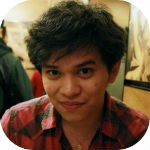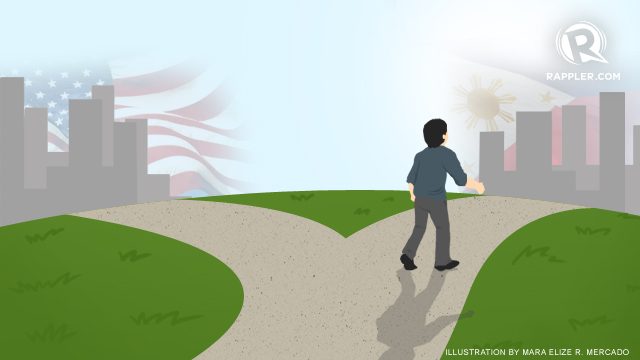SUMMARY
This is AI generated summarization, which may have errors. For context, always refer to the full article.
 Before I moved to the US in 2003, I had lived my entire life in Dumaguete City. Living a block away from Rizal Avenue’s beachside boulevard, I was an island child through and through. My childhood was soundtracked by yells of nighttime balut vendors; my schoolyard was a battleground of teks cards and captured spiders.
Before I moved to the US in 2003, I had lived my entire life in Dumaguete City. Living a block away from Rizal Avenue’s beachside boulevard, I was an island child through and through. My childhood was soundtracked by yells of nighttime balut vendors; my schoolyard was a battleground of teks cards and captured spiders.
Yet there was a disconnect between the stories I lived and the stories I consumed. On television, the ghosts of Western colonialism took the form of American cartoons. That was where I learned about what to aspire and value. Where I learned, slowly but surely, that the “good life” I was supposed to want looked nothing like the life I was living. It wasn’t even written in the same language. (READ: Learning Filipino)
Since those days, I’ve gone through the whole migrant arc of losing my Filipino identity to the jaws of American culture. And then – I found myself circling back. Slowly at first, then again and again, reconnecting more deeply each time. Reclaiming a piece of my childhood each time. In the end, piecing together an appreciation of home that was fuller than when I began.
There’s a new story unfolding in the Philippines today: a story that sings of strength and hardened triumph. A fundamentally different story than the one we migrants have told ourselves, and told the rest of the world. This is not the Philippines we left behind.
Old pictures of home
In 2003, my mom got recruited as a US nurse and took us across oceans to a new home in Garfield Heights, Ohio. In a short time, I found myself among the over 10 million Filipinos who live outside the Philippines, scattered by culture and opportunity and driven to lose themselves in the pressures of assimilation.
By high school, I was fluent in Cleveland slang, Coen Brothers quotes, and Modest Mouse anthems. In the meantime, my memory of the Philippines began to fade. More and more, the Philippines was that place I left behind: a distant dream, a vacation spot, a desert of opportunity. All past and no future. (READ: I feel less Filipino everyday)
Eventually, I got close to Fil-Am friends who had never lived in the Philippines. They knew the country solely through their parents’ migration stories, brief vacations, and news of disaster. Their understanding of the Philippines was based on that perspective. (READ: Fil-Ams tell parents migration to America ‘not in vain’)
When I asked them what they thought of the country, it was about traffic, the heat, the corruption, the inequality. When I asked what they liked about the Philippines: the food, the sun, and the gentle warmth of the Filipino people.
Not promise, not potential. It was the place we left behind.
These images and stories of the Philippines are not untrue. The problems that pushed us away are still very much present; inequality and violence linger beneath the shiny veneer of handpicked beaches and monolithic shopping malls.
But they capture a limited perspective of what the country is, and they paint a limited view of what the future could look like. They tell us nothing about how Filipinos can claim and define their own future – and how they’re doing so as we speak.
A new kind of people power
There’s some recent buzz about how the Philippines could be the “new Asian tiger.”
It’s not nearly as simple as it sounds – growth has slowed in the recent quarter, and the majority of these returns have been swallowed up by the local elites. (READ: Why the Philippines is Asia’s bright spot)
But there are significant signs of momentum. By the end of 2014, the Philippines clocked in as the second fastest-growing economy that year, second only to China, and the growth has been characterized as increasingly “more inclusive.” Unemployment, while still high, is the lowest it’s been in at least a decade.
At the heels of this economic expansion comes the growth of the social enterprise movement, where corporate players – both investors and entrepreneurs – are collaborating to create a new definition of success in business that focuses on social return rather than purely financial gains. This charge has been led by Smart’s IdeaSpace, Globe’s Kickstart Ventures, Gawad Kalinga’s Enchanted Farm, and many more. (READ: PH social enterprise covers 2.5 million poor Filipinos)
Concurrent to this is the social entrepreneurship field, which overlaps but also differs significantly from the social enterprise dialogue. In the social entrepreneurship framework, the focus is on systemic change, breakthrough insights, and new solutions: essentially creating and bringing to life new models of how society can work for the good of all.
Over the past two years, Ashoka, the oldest network social entrepreneurs, elected five Ashoka fellows from the Philippines: among them are Girlie Lorenzo of Kythe, who is working to eventually make all hospitals more humane spaces for children with illnesses; Kevin Lee, who is rallying governments and local communities around low cost water technology; and Cristina Liamzon, who is developing technical and entrepreneurial capacities in OFWs and their children.
A look at the landscape shows us new profiles of changemaking: young people, balikbayans, designers, entrepreneurs. Most importantly, the communities that have been at the frontlines of social issues, living and addressing these issues head-on, continue to be there, organizing and rising despite the odds that come with inequality and climate change. And they are gaining voice and allies.
The rest of the Philippines is just now waking up to the strength of the poor and oppressed. The new frontier is in creating the channels, spaces, and mechanisms that enable and harness their abilities for our nation’s collective progress. To me, the most necessary and initiatives are the ones that ensure that everyone – not just corporates, transnationals, and the upper middle class – has the power to shape our country.
The time is now
Whether we want to or not, we migrants have a profound effect on the way the world envisions and interacts with the Philippines. For too long, we have told a story of the Philippines that’s all about corruption and despair. While these problems are real, to focus solely on them undermines the potential and all the work that has been done by the people who have stayed while we left for new horizons.
Our global community needs to step back and reacquaint ourselves to this new Philippines: to the new landscape of potential solutions and what they mean for our own involvement.
This new chapter of social change in the Philippines is relatively new, which means there’s as much danger of losing momentum as there is potential in hitting the next tipping point. Filipinos outside the Philippines have access to resources, networks, and capital to make sure that this movement doesn’t wane, but grows exponentially.
At this early stage, we’re also positioned to play a role in what the new order will look like. There is a struggle for power in the midst of all this: Who will decide the future of the Philippines? Thoughtful involvement from the global Filipino community could help ensure sure that the right questions are being asked, the right communities are involved, and the agenda is focused on full agency, inclusion, and leadership in the hands of the communities with the most at stake.
This can only happen if we’re connected to the pulse of realities in the Philippines, if we come in from a position of genuine respect and support, and if we translate this into thoughtful action. Those aren’t small assumptions. But if we do it right, it can mean a complete deconstruction of the stigmas, stereotypes, and disempowering myths of what the Philippines and its people are capable of.
This is not the Philippines we left behind. Nor will it ever be. What comes next is up to its people – and to its global children as well, if we heed its call. – Rappler.com
Rexy Josh Dorado is co-founder of KayaCo, a Harvard and Brown University organization of Filipino American undergraduate students. Rexy was born in Dumaguete City, Philippines, and moved to the Cleveland area in 2003. He has been trying to thread his story back into his homeland’s since.
Add a comment
How does this make you feel?
There are no comments yet. Add your comment to start the conversation.